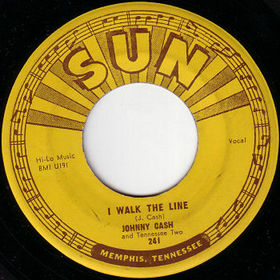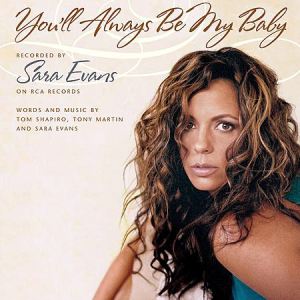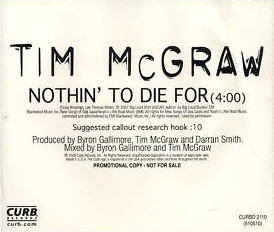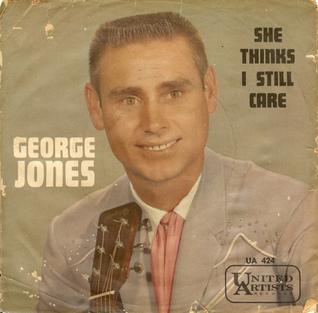Related Research Articles
"Poor Poor Pitiful Me" is a rock song written and first recorded by American musician Warren Zevon in 1976.

"I Walk the Line" is a song written and recorded in 1956 by Johnny Cash. After three attempts with moderate chart ratings, it became Cash's first #1 hit on the Billboard country chart, eventually reaching #17 on the Billboard Hot 100.

"You'll Be in My Heart" is a song by English drummer and singer Phil Collins from the 1999 Disney animated feature Tarzan. It appeared on Tarzan: An Original Walt Disney Records Soundtrack as well as various other Disney compilations. It won the Academy Award for Best Original Song, and became Collins' last US top-40 single, peaking at number 21.

"Sunshine on My Shoulders" is a song recorded and co-written by American singer-songwriter John Denver. It was originally released as an album track on 1971's Poems, Prayers & Promises and later, as a single in 1973. It went to No. 1 on the Billboard Hot 100 chart in the U.S. in early 1974.

The Fairest of Them All is the fifth solo studio album by American singer-songwriter Dolly Parton. It was released on February 2, 1970, by RCA Victor. The album was produced by Bob Ferguson. It was the first of Parton's albums on which she wrote the majority of the songs without a co-writer. The Fairest of Them All peaked at number 13 on the Billboard Top Country Albums chart. The album's only single, "Daddy Come and Get Me", peaked at number 40 on the Billboard Hot Country Songs chart.
"Highwayman" is a song written by American singer-songwriter Jimmy Webb about a soul with incarnations in four different places in time and history: as a highwayman, a sailor, a construction worker on the Hoover Dam, and finally as a captain of a starship. Webb first recorded the song on his album El Mirage, released in May 1977. The following year, Glen Campbell recorded his version on his 1979 album Highwayman.

"The Good Stuff" is a song written by Jim Collins and Craig Wiseman and recorded by the American country music artist Kenny Chesney. It was released in May 2002 as the second single from his 2002 album No Shoes, No Shirt, No Problems.

"Stop Draggin' My Heart Around" is a song recorded by Stevie Nicks and Tom Petty and the Heartbreakers and released as the first single from Nicks' debut solo album Bella Donna (1981). The track is the album's only song that was neither written nor co-written by Nicks. Written by Tom Petty and Mike Campbell as a Tom Petty and the Heartbreakers song, Jimmy Iovine, who was also working for Stevie Nicks at the time, arranged for her to sing on it. Petty sings with Nicks in the chorus and bridge, while his entire band provides instrumentation with the exception of Ron Blair, who was replaced by bassist Donald "Duck" Dunn for the recording.

"Galveston" is a song written by Jimmy Webb and popularized by American country music singer Glen Campbell who recorded it with the instrumental backing of members of The Wrecking Crew. In 2003, this song ranked number 8 in CMT's 100 Greatest Songs in Country Music. Campbell's version, produced by Al De Lory, also went to number 1 on the country music charts. On other charts, "Galveston" went to number 4 on the Billboard Hot 100 and number one on the "Easy Listening" charts. It was certified gold by the RIAA in October 1969.

"You'll Always Be My Baby" is a song co-written and recorded by American country music artist Sara Evans. It was released in September 5, 2006 as the fourth and final single from her 2005 album Real Fine Place. The song peaked at number 13 on the US Billboard Hot Country Songs chart. The song is also included on Evans' 2007 Greatest Hits album. Evans wrote this song with Tony Martin and Tom Shapiro.

"Believe" is a song written by Ronnie Dunn and Craig Wiseman, and recorded by American country music duo Brooks & Dunn. It was released in October 2005 as the second single from their album Hillbilly Deluxe, and it won the Country Music Association's 2006 awards for Single of the Year, Song of the Year and Music Video of the Year. Rolling Stone ranked "Believe" No. 33 on its list of the 40 Saddest Country Songs of All Time in 2019.
"I'll Try" is a song written and recorded by American country music artist Alan Jackson. It was released in January 1996 as the second single from his 1995 compilation album The Greatest Hits Collection. Like "Tall, Tall Trees", it was a number-one hit on the U.S. Billboard Hot Country Singles & Tracks. It also reached number 5 on the Canadian RPM Country Tracks chart.

"Nothin' to Die For" is a song written by Lee Thomas Miller and Craig Wiseman, and recorded by American country music artist Tim McGraw. It was released in January 2009 as the seventh and final single from his album Let It Go. It is McGraw's fifty-first chart entry on the Billboard country charts. It peaked at number 5 in the United States, and number 3 in Canada in April 2009.

"Getcha Some" is a song co-written and recorded by American country music artist Toby Keith. It was released in September 1998 as the lead single from his compilation album Greatest Hits Volume One. It peaked at number 18 on the U.S. Billboard Hot Country Songs chart in the U.S. and number 22 on the Canadian RPM Country Tracks chart. It also peaked at number 2 on the U.S. Billboard Bubbling Under Hot 100 chart. This song is also included on his 2008 compilation album, 35 Biggest Hits. It was written by Keith with Chuck Cannon.

"She Thinks I Still Care" is a country song written by Dickey Lee and Steve Duffy. First popularized by George Jones, the song has been recorded by many artists, including Connie Francis, Anne Murray, Elvis Presley and Patty Loveless.
"You Never Even Called Me by My Name" is a song written by Steve Goodman and John Prine. Prine requested to be uncredited on the song, as he thought it was a "goofy, novelty song" and did not want to "offend the country music community". Goodman released the song on his 1971 debut album Steve Goodman to little acclaim. It was more famously recorded by country music singer David Allan Coe on his 1975 album Once Upon a Rhyme. It was the third single release of Coe's career and his first Top Ten hit, reaching a peak of number eight on the Billboard country singles charts. The song, over five minutes long, is known for its humorous self-description as "the perfect country and western song."

Craig Campbell is an American country music singer. He signed to Bigger Picture Music Group and has released two albums: Craig Campbell (2011) and Never Regret (2013). He has had eight singles on the country chart.

"Boys 'Round Here" is a song written by Rhett Akins, Dallas Davidson, and Craig Wiseman and recorded by American country music artist Blake Shelton. The song is credited to "Blake Shelton with Pistol Annies and Friends", as it features myriad vocal collaborators including the Pistol Annies, along with country singer RaeLynn, all three co-writers, and Scott Hendricks, who also produced the track.

"Mine Would Be You" is a song written by Jessi Alexander, Connie Harrington, and Deric Ruttan and recorded by American country music artist Blake Shelton. It was released in July 2013 as the third single from Shelton's 2013 album Based on a True Story…. The song reached number one the US Billboard Country Airplay chart.
"Tuscan Leather" is a song by Canadian recording artist Drake for his third studio album, Nothing Was the Same (2013). It was written by Drake along with Anthony Palma and Noah Shebib, who produced the song under his production name "40" along with Nathan Sessoms. The song heavily samples "I Have Nothing" performed by Whitney Houston and written by David Foster and Linda Thompson-Jenner, who received writing credits on "Tuscan Leather". Noted for its unique song structure devoid of any choruses, it is a hip hop song which utilizes influences of R&B and ambient throughout its composition.
References
- ↑ Whitburn, Joel (2013). Hot Country Songs: 1944-2012, Eighth edition. Record Research. p. 61.
- ↑ "Craig Campbell, 'When I Get It' – Song Review".
- ↑ "Craig Campbell Chart History (Hot Country Songs)". Billboard.